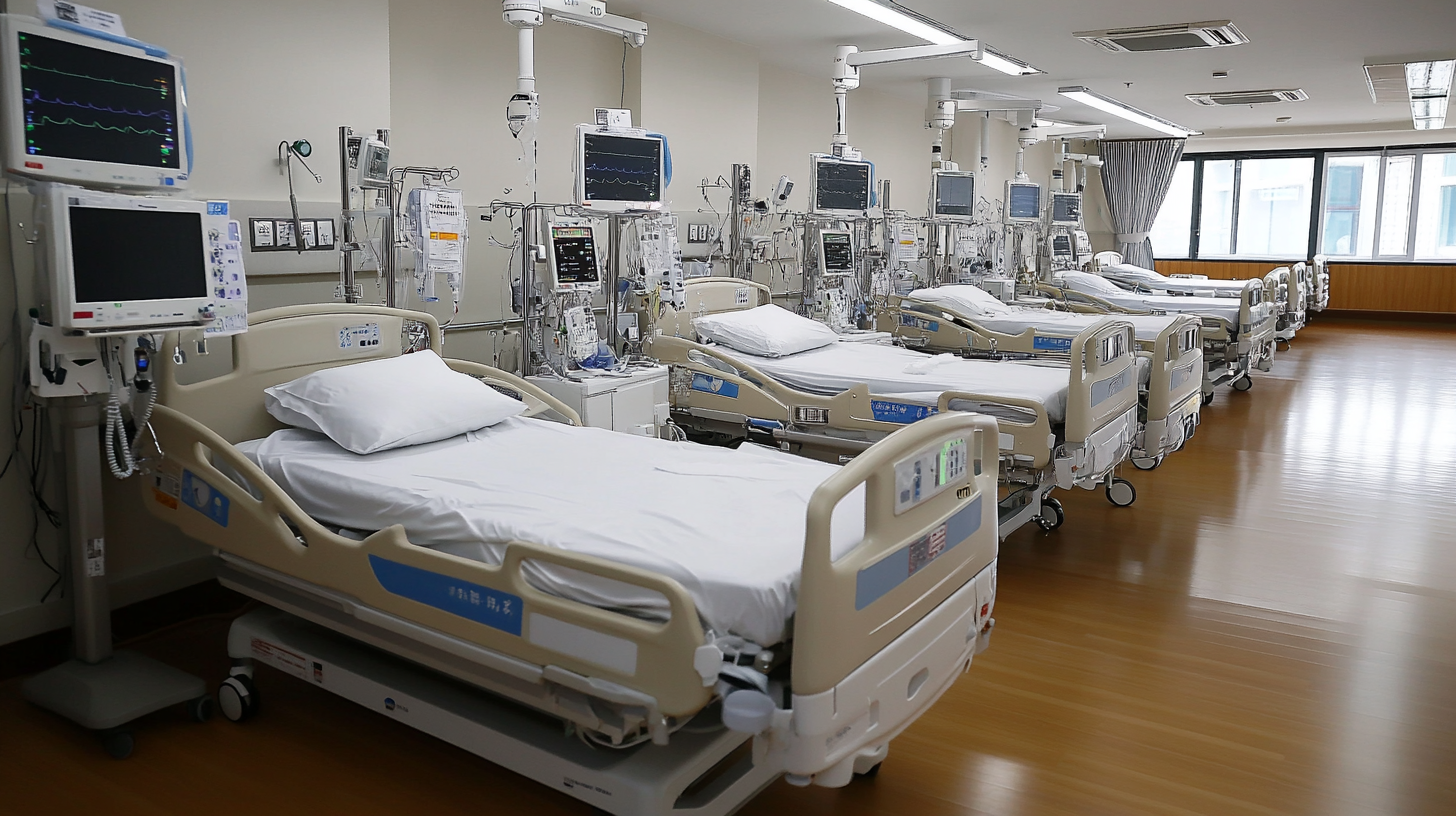7 Essential Tips for Finding the Best Medical Equipment Supplier Worldwide
In today's healthcare environment, choosing the right Medical Equipment Supplier is paramount for ensuring the highest quality of patient care. According to a report by IBISWorld, the medical equipment manufacturing industry is projected to reach over $170 billion by 2025, driven by advancements in technology and an increasing demand for innovative medical devices. This substantial growth underscores the necessity for healthcare providers to partner with reliable and reputable suppliers who can deliver not only quality products but also exemplary service and support.
Furthermore, a survey conducted by Market Research Future highlighted that nearly 40% of healthcare organizations consider the reputation and reliability of their Medical Equipment Supplier as a critical factor in their purchasing decisions. As the landscape of healthcare continues to evolve with new challenges and technologies, finding the best supplier is more important than ever. Practitioners must navigate through numerous options and align with suppliers that can meet their evolving needs while ensuring compliance with regulatory standards. This blog post will outline seven essential tips to help healthcare professionals identify the most suitable Medical Equipment Supplier globally.

Understanding Your Medical Equipment Needs Before Choosing a Supplier
When selecting a medical equipment supplier, understanding your specific medical equipment needs is paramount. The complexities of modern healthcare, exacerbated by disruptions in the supply chain during the COVID-19 pandemic, highlight the necessity for clarity in what healthcare providers require. It’s important to assess not only the types of medical devices needed but also their functionalities and the environments in which they will be used. This involves considering factors such as the intended patient population, potential device interactions, and compliance with regulatory standards. Moreover, the emergence of advanced technologies like 3D printing adds another layer of consideration. Healthcare providers must evaluate if suppliers offer innovative solutions that align with their unique challenges, like the need for custom-fit devices in surgical procedures. Additionally, with ongoing discussions about sustainability in medical device donations, especially in low-income countries, it's vital to ensure that the selected suppliers adhere to ethical practices and contribute positively to global health outcomes. Equipped with this understanding, healthcare professionals can engage suppliers who not only meet immediate equipment needs but also align with long-term goals of innovation and sustainability. Early engagement with potential suppliers can lead to better partnerships, ensuring that the right tools are chosen from the outset, ultimately affecting patient care positively.

Researching Potential Suppliers: Key Factors to Consider
When researching potential medical equipment suppliers, several key factors must be taken into account to ensure you choose the best partner for your needs. One fundamental consideration is the supplier's industry reputation. According to a 2022 MedTech industry report, approximately 70% of healthcare providers prioritize supplier reliability and service quality when making procurement decisions. This highlights the importance of choosing a supplier with a proven track record.
Another critical factor is the supplier’s product range and technological capabilities. The global medical equipment market is projected to reach $659.8 billion by 2025, with a significant emphasis on innovation and advanced technology. Suppliers who stay ahead of trends and offer cutting-edge products can better meet the evolving demands of healthcare providers. Assessing a supplier’s inventory for quality certifications, such as ISO 13485, can also provide insights into their commitment to maintaining high standards.
Additionally, consider the supplier's customer support and after-sales services. A survey conducted by Healthcare Purchasing News indicated that 65% of respondents are willing to pay a premium for suppliers that provide superior customer service. This is essential, as even the best equipment can falter, and having responsive support can minimize downtime in critical healthcare environments. Evaluating these aspects will greatly enhance your chances of finding a reliable medical equipment supplier that aligns with your operational goals.

Evaluating Supplier Reputation and Reliability in the Healthcare Sector
When it comes to sourcing medical equipment, evaluating supplier reputation and reliability is crucial for ensuring quality and compliance in healthcare. A recent report by Grand View Research indicates that the global medical devices market is projected to reach $659.8 billion by 2025, underlining the importance of selecting a capable supplier in this growing sector. Reliable suppliers not only provide high-quality equipment but also comply with stringent regulatory requirements established by organizations like the FDA and WHO.
One effective approach to evaluate a supplier's reputation is by examining their certifications and endorsements. According to the Medical Device Manufacturers Association (MDMA), suppliers with ISO 13485 certification demonstrate their commitment to quality management systems, which is essential for maintaining standards in healthcare. Additionally, customer testimonials and case studies can offer valuable insights into a supplier's operational reliability and service responsiveness. In fact, a survey from KPMG revealed that 67% of healthcare executives consider customer satisfaction as a critical factor when assessing supplier performance.
Furthermore, analyzing a supplier's track record in the industry can provide deeper insights into their reliability. Industry reports indicate that suppliers with a proven history of compliance and innovation tend to have stronger partnerships with healthcare providers. For instance, a study by Frost & Sullivan found that companies with effective supplier management programs saw a 30% improvement in product delivery and customer service. Therefore, conducting thorough research and leveraging available data are vital steps in identifying a trusted medical equipment supplier that can meet the evolving needs of the healthcare sector.

Ensuring Compliance with Regulatory Standards and Certifications
When seeking a reliable medical equipment supplier, ensuring compliance with regulatory standards and certifications is paramount. These regulations are designed to safeguard patient safety and enhance the quality of healthcare services. Suppliers must adhere to various international and local standards, such as ISO 13485 for quality management systems and the FDA regulations in the United States. Therefore, it's crucial to verify that your potential suppliers possess the appropriate certifications that demonstrate their commitment to quality and regulatory adherence.
Another vital aspect is the company's ability to keep up with evolving regulations. The medical equipment landscape is continually changing, with new technologies and compliance requirements emerging. A reputable supplier should not only have the necessary certifications but also a proactive approach to maintaining compliance with updates in regulatory guidelines. This includes regularly updating their quality management practices and providing ongoing training for their staff. Engaging with suppliers who prioritize compliance not only minimizes risks but also establishes a foundation for a trustworthy and productive partnership in your medical supply chain.
Assessing After-Sales Support and Warranty Options for Medical Equipment
When searching for the ideal medical equipment supplier, it's crucial to prioritize after-sales support and warranty options. A responsive and knowledgeable support team can make a significant difference in ensuring that the equipment operates efficiently and that any issues are resolved promptly. Firms that invest in comprehensive after-sales services not only demonstrate reliability but also foster a sense of trust with their clients. Features such as 24/7 customer support, training on equipment usage, and regular maintenance checks can greatly enhance user experience and equipment longevity.
Warranty options are another vital aspect to consider when choosing a medical equipment supplier. A robust warranty can protect your investment by covering repairs, replacement parts, and even potential equipment failures. It is advisable to look for suppliers that offer extended warranty periods and flexible terms. Additionally, understanding what the warranty covers—such as parts, labor, and accidental damage—is essential. Investing in equipment from suppliers with strong warranty policies can save facilities considerable costs in the long run and ensure continuity in operations during equipment downtime.
By thoroughly assessing these aspects, healthcare providers can find suppliers that not only offer quality products but also support their needs beyond the initial purchase, ultimately leading to better patient care and operational efficiency.

